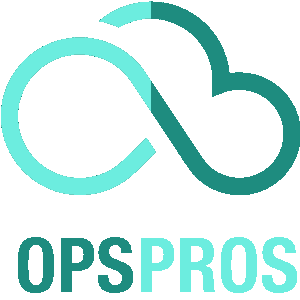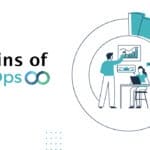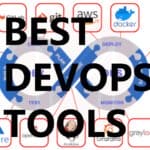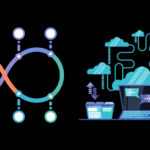
DevOps and AI
DevOps is the leading methodology for streamlining software development workflows and enhancing team communication. The question is: how can a DevOps Team take advantage of Artificial Intelligence
Artificial intelligence (AI) is a rapidly evolving technology with a widespread impact on customer service, e-commerce, healthcare, transportation, and more.
Integrating AI into DevOps boosts efficiency and effectiveness. It introduces automation for code testing, system monitoring, and proactive issue resolution.
What is DevOps?
DevOps emphasizes collaboration between developers and IT professionals, automating previously manual processes. The goal is to create high-quality software faster, minimizing errors caused by miscommunication.
By implementing this approach, companies can reduce time-to-market and boost profitability. They achieve this by rapidly delivering new features while maintaining stability.
What is Artificial Intelligence?
Artificial Intelligence encompasses machines or systems capable of complex tasks requiring human intelligence, like learning from data patterns or recognizing speech and images.
Integrating AI into DevOps enables various automation possibilities, such as simultaneous continuous testing across multiple environments or predictive performance analysis using machine learning algorithms. Developers can now automate more tasks than before.
Why Integrate AI with DevOps?
Integrating AI with DevOps has become essential for maximizing IT system efficiency. Its intelligent algorithms analyze data patterns in real time, enabling faster problem detection, diagnosis, and potential resolution.
This enhances software system productivity and reliability. AI also reveals behavior patterns imperceptible to humans, empowering DevOps teams with real-time data analysis on a massive scale and actionable insights.
Integrating AI into DevOps is the logical progression for IT organizations seeking software development process improvement. This transformative technology automates workflows and provides valuable insights to boost performance.
Benefits of AI in DevOps – how a DevOps Team can take advantage of Artificial Intelligence
Improved efficiency and productivity
One of the most significant benefits of using AI in DevOps is the ability to improve efficiency and productivity. DevOps teams can save time and reduce manual errors by automating repetitive tasks, such as testing, deployment, and monitoring.
Automating these processes also frees team members to focus on more complex tasks requiring human intervention.
For example, AI-powered tools can automatically deploy code changes while monitoring performance metrics, freeing DevOps engineers to work on more strategic projects requiring specialized knowledge.
Enhanced accuracy and reliability
Another benefit of using AI in DevOps is improved accuracy and reliability. Machine learning algorithms can analyze large amounts of data to identify patterns and anomalies that might be missed by humans.
This can help prevent issues before they occur by allowing teams to proactively address potential problems instead of reacting after the fact.
Automated testing tools powered by machine learning algorithms can detect defects much faster than manual testing methods.
Better decision-making capabilities
AI-powered analytics tools aid DevOps decision-making by providing real-time insights into infrastructure performance metrics.
Teams swiftly detect and address issues before they escalate, ensuring optimal resource utilization planning.
Predictive analytics algorithms improve accuracy in predicting future resource usage and application demand, optimizing efficiency.
AI in DevOps brings numerous benefits: improved efficiency, productivity, quicker time-to-market, higher reliability, and better decision-making capabilities.
Use Cases how a DevOps Team can take advantage of Artificial Intelligence

Automated testing and deployment
One of the most significant benefits of integrating AI into DevOps is the ability to automate many tasks previously done manually. Automated testing and deployment are two areas where AI can make a real difference. Traditionally, developers had to test their code thoroughly before deploying it to production.
This process was time-consuming and prone to errors. With the help of AI-powered tools, however, this process can be streamlined significantly.
AI can run automated tests that simulate user behavior on a website or application. These tests can identify bugs and other issues in real time, so developers can fix them much faster than before.
Additionally, AI can also be used to automate the deployment process itself. This means code changes are deployed quickly and efficiently without human intervention.
Predictive analytics for infrastructure management, how a DevOps Team can take advantage of Artificial Intelligence
Another area where AI can be beneficial is infrastructure management. Managing these complex systems becomes more challenging as businesses move towards cloud-based infrastructures. That’s where predictive analytics comes in.
Predictive analytics uses machine learning algorithms to identify patterns in data sets. These patterns are then used to accurately predict future events or trends.
In infrastructure management, predictive analytics can monitor systems proactively and predict potential outages or performance issues before they occur. With predictive analytics incorporated into DevOps workflows, teams can optimize their systems proactively instead of reacting after something goes wrong.
Chatbots for customer support
Chatbots are another excellent use case for AI in DevOps today – particularly regarding customer support. As businesses become more reliant on digital services – websites or apps – customer service needs have also shifted: customers expect fast responses — day or night — through convenient channels.
Enter chatbots: AI-powered tools can converse with users, answer common questions, and help solve issues without requiring human intervention.
Chatbots can work around the clock and without a break, unlike customer service employees, who require training and getting paid for their work hours. Chatbots can be integrated into existing communication channels, such as messaging apps or company websites, to handle customer support inquiries efficiently.
They can also be trained to recognize patterns in user behavior, allowing them to provide better recommendations or troubleshoot more effectively over time.
AI has several uses within DevOps teams that optimize workflows and improve results: automated testing and deployment for faster deployments of code changes, predictive analytics for proactive infrastructure management, and chatbots for 24/7 customer support.
How a DevOps Team can Take Advantage of Artificial Intelligence and implementing its challenges
Data quality and availability
One of the biggest challenges DevOps teams face when implementing AI is ensuring that the data used to train AI models is highly quality and readily available. Data from different sources may often be incomplete, outdated, or inconsistent, making it challenging to create accurate models.
Additionally, data security must be considered to ensure that unauthorized personnel do not access sensitive information. As a result, it’s critical to have dedicated data management practices that ensure data accuracy and privacy.
Skillset gap among team members
Another challenge associated with implementing AI in DevOps is the skillset gap among team members. While some may have extensive experience with traditional DevOps tools and processes, others may lack knowledge or understanding of machine learning algorithms and related technologies.
This can make it challenging to integrate AI into existing workflows seamlessly. To address this issue, companies must invest in training programs for their employees so they can upskill their knowledge of AI concepts.
Integration with existing tools and processes
Integrating AI into existing tools and processes can be a significant obstacle for DevOps teams. Many organizations use multiple software tools for their operations management process.
Integrating these tools with an intelligent system like an AI solution can be tricky since they are often not designed to work together seamlessly.
To overcome this challenge effectively, teams must carefully evaluate their current workflows and identify opportunities for integration while considering potential risks associated with making changes to essential business processes.
Overall, while there are undoubtedly challenges when implementing an AI solution into a DevOps environment, taking a strategic approach towards overcoming them will yield significant benefits such as improved efficiency, productivity gains, and better decision-making capabilities throughout the organization.
Best Practices for How a DevOps Team Take Advantage of Artificial Intelligence

Start with Small Projects and Gradually Scale Up
Integrating AI into your DevOps workflow can be daunting, especially if your team has no prior experience with machine learning. That’s why starting small and gradually scaling up is essential as you gain more confidence and expertise.
Begin by identifying an area of your workflow that AI could impact, such as automated testing or predictive analytics.
Then, gather data and train your machine learning models on a small dataset before deploying them in production. This will help you avoid potentially catastrophic mistakes from using untested models.
As you gain experience and confidence, continue to experiment with more complex projects that incorporate larger datasets and more advanced machine learning algorithms.
By following this approach, you’ll be able to integrate AI into your DevOps workflow to minimize risk while maximizing potential benefits.
Foster a Culture of Experimentation and Learning
One of the key advantages of incorporating AI into your DevOps workflow is the opportunity it provides for experimentation and innovation. However, this can only happen if you foster a culture that encourages experimentation and learning among team members.
Ensure everyone on your team understands the importance of taking risks and trying new approaches when integrating AI into your workflow. Encourage open communication so everyone is comfortable sharing their ideas and feedback.
Developing this type of culture takes time, but it’s essential for building an agile DevOps team that can adapt to changing circumstances. By fostering an environment where experimentation is valued, you’ll be able to identify new opportunities for optimization that would otherwise go unnoticed.
Invest in Training and Upskilling Team Members
Integrating AI into your DevOps workflow requires specialized skills in data science, machine learning, and natural language processing. Investing in training and upskilling your team members is essential for building the expertise you need to succeed.
Consider offering on-the-job training programs or sending team members to external workshops and conferences focused on AI.
Encourage team members to take online courses or earn certifications in relevant areas.
By investing in training and upskilling, you’ll build the expertise you need to integrate AI into your DevOps workflow and ensure that your team is well-positioned for success as AI continues to play a growing role in the technology industry.
Future Outlook on the Role of AI in DevOps
Potential advancements in machine learning algorithms
Advancing machine learning algorithms enhance AI’s role in DevOps, especially in predictive analytics.
More data enables better issue prediction, leading to proactive maintenance and troubleshooting.
Natural language processing (NLP) offers growth potential, enabling chatbots and conversational interfaces for efficient communication between teams and customers.
Increased adoption of AI-powered tools by enterprises
Enterprises benefit from AI-powered tools in DevOps, leading to widespread adoption across industries.
AI automates testing and deployment, resulting in faster release cycles and higher reliability.
Infrastructure management will see increased AI adoption, quickly identifying issues to reduce downtime and improve performance.
DevOps teams embracing AI-powered tools, staying ahead with machine learning advancements, remain competitive in a changing landscape.
Conclusion – How Can a DevOps Team Take Advantage of Artificial Intelligence
Integrating AI into DevOps brings efficiency, productivity, accuracy, reliability, and better decision-making.
Challenges like data quality, skill gaps, and tool integration can be overcome through training and experimentation.
Best practices: start small, foster a learning culture, invest in training, and stay updated on advancements.
AI advancements can predict infrastructure issues, automate tasks, and enable focus on high-level tasks.
Enterprises will adopt AI-powered tools for process automation and greater efficiencies.
The integration of AI into DevOps significantly impacts efficiency and productivity levels.
Success requires measured planning, collaboration, and careful implementation of new technologies.
Noah is an accomplished technical author specializing in Operations and DevOps, driven by a passion ignited during his tenure at eBay in 2000. With over two decades of experience, Noah shares his transformative knowledge and insights with the community.
Residing in a charming London townhouse, he finds inspiration in the vibrant energy of the city. From his cozy writing den, overlooking bustling streets, Noah immerses himself in the evolving landscape of software development, operations, and technology. Noah’s impressive professional journey includes key roles at IBM and Microsoft, enriching his understanding of software development and operations.
Driven by insatiable curiosity, Noah stays at the forefront of technological advancements, exploring emerging trends in Operations and DevOps. Through engaging publications, he empowers professionals to navigate the complexities of development operations with confidence.
With experience, passion, and a commitment to excellence, Noah is a trusted voice in the Operations and DevOps community. Dedicated to unlocking the potential of this dynamic field, he inspires others to embrace its transformative power.







